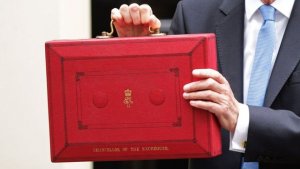- Private Wealth
- Tax & Estate Planning
- Trusts

Shorter Reads
Sister (P)act 2: Back in the Co(habit)ation
1 minute read
Published 8 October 2018
Key information
- Services
- Private Wealth
- Tax & Estate Planning
- Trusts
Some people are using the extension of the civil partnership rules to heterosexual couples as an opportunity to highlight the ways in which the rules on inheritance tax (“IHT”) favour married couples (or those in civil partnerships).
Whilst it seems unlikely at this stage that the Government will submit to calls to allow siblings similar access to these IHT exemptions, it does raise the interesting ethical question about why avoiding IHT continues to be so closely linked to marriage or civil partnerships. The argument that it is to preserve family wealth does not hold, because IHT is taxed at 40% when the surviving spouse does eventually pass wealth down to children. Indeed, a married couple receives the exemption whether or not they have children, whereas a different individual may wish to pass assets to a loved niece or nephew via their own sibling. In the former scenario IHT is only taxed once (on the death of the surviving spouse), whereas in the second scenario HMRC takes a 40% cut twice.
Given that the exemption simply requires that individuals be married or in a civil partnership, it begs the question of what the justification is for the continued generosity towards couples in the 21st century.
https://www.ft.com/content/fe845b30-ca46-11e8-b276-b9069bde0956
Longer Reads
Read more
DESTINATION UK: Relocation advice for HNW individuals, business owners, entrepreneurs and familiesShorter Reads
Read more
Election 2024: Initial comments on potential tax changesShorter Reads
Read more
Keir Starmer launches Labour manifestoShorter Reads
Read more
Stay or go? UK opposition’s tax hit on non-doms likely to encourage exodusShorter Reads
Read more
CB team comments on the Chancellor’s 2024 Spring BudgetNews
Read more
Collyer Bristow wins ‘Law Firm of the Year’ at CityWealth Magic Circle AwardsShorter Reads
Read more
Can I make cash gifts under a power of attorney arrangement?Shorter Reads
Read more
How will the Autumn Statement impact inheritance tax
Longer Reads
Read more
The Middle Classes and the Autumn Budget Statement: Fallback, Fail-Safe, Cash-Cow, TaxpayersLonger Reads
Read more
Tax Justice UK proposes wealth tax to raise £37 billionLonger Reads
Read more
The importance of trusts and ringfencing assetsShorter Reads
Read more
ESG credentials key to attracting private investments, with ethical and moral concerns a deciding factorShorter Reads
Read more
Spring Budget Statement 2022Shorter Reads
Read more
Thoughts on new measures to tackle “dirty money” in the UKShorter Reads
Read more
HICBC: January 2022 update – 2017/2018 tax positionShorter Reads
Read more
Gifts to Disabled and Vulnerable People
Shorter Reads
Read more
Can I gift my holiday home or rental property to my childrenShorter Reads
Read more
What gifting options do non-domiciliaries have?Shorter Reads
Read more
Gifting up a GenerationShorter Reads
Read more
Gifts with international elementsShorter Reads
Read more
What are the tax implications of being the Bank of Mum and Dad?Shorter Reads
Read more
US tax changes could be imminentShorter Reads
Read more
The Giving PledgeShorter Reads
Read more
Can I give my home to my children (and still live in it)?
Shorter Reads
Read more
How to efficiently gift business assetsShorter Reads
Read more
US/UK givingShorter Reads
Read more
Gifts and Lasting Powers of Attorney (“LPAs”)Longer Reads
Read more
Collyer Bristow Annotations on the discovery assessments policy paperShorter Reads
Read more
Normal expenditure out of incomeShorter Reads
Read more
Gifting in the Arts (CGS v AIL)Shorter Reads
Read more
How can I help my children buy a house?Shorter Reads
Read more
How should I approach charitable giving?
News
Read more
Collyer Bristow named as one of the 2021 eprivateclient Top Law FirmsShorter Reads
Read more
Cyber criminals love lockdownShorter Reads
Read more
Second home owners beware!Shorter Reads
Read more
HMRC estate administration investigationsShorter Reads
Read more
Are Google’s cookies crumbling?Shorter Reads
Read more
Domicile Enquiries – Tax Tribunal has jurisdiction to determine domicile in closure notice applications: Henkes v HMRCShorter Reads
Read more
Covid-19, Travel Restrictions, and Tax Residence of Companies: OECD Guidance ReleasedShorter Reads
Read more
Retrospective Anti-Forestalling and the 2020 Budget Entrepreneurs Relief Changes: What Price the Rule of Law?
Shorter Reads
Read more
Prime Minister’s remarks increase Entrepreneurs Relief concernsShorter Reads
Read more
Pre-Budget CGT Planning: Time to Act for Entrepreneurs and Business OwnersShorter Reads
Read more
General Election: party manifestos confirm coming CGT Entrepreneurs Relief changesShorter Reads
Read more
Calls to Abolish CGT Entrepreneurs Relief – Should Business Owners Be Worried?Shorter Reads
Read more
Why apathy isn’t good enough when it comes to WillsShorter Reads
Read more
Are non-doms really leaving the UK?Shorter Reads
Read more
Should inheritance tax be simplified?Shorter Reads
Read more
Which parent died first and why does it matter?
Shorter Reads
Read more
£15bn lost behind the sofaShorter Reads
Read more
Johnson proposes £3,000 tax cut for higher earnersShorter Reads
Read more
UK Supreme Court considers ‘the ordinary reader of a Facebook Post’ in Defamation claimShorter Reads
Read more
Being born a royal is hard enough – try being a US taxpayer tooShorter Reads
Read more
One in a million? No, you’re only one in five.Shorter Reads
Read more
Are robots writing your will?Shorter Reads
Read more
Whenever, Wherever… no Shakira, you need to keep track.Shorter Reads
Read more
Why giving money to UKIP might give you a large tax bill
Shorter Reads
Read more
Why you will no longer need to swear when visiting your solicitorShorter Reads
Read more
Government to push ahead with 3,770% increase in probate fees for the wealthiest estatesShorter Reads
Read more
Leave your estate to loved ones rather than up to chanceShorter Reads
Read more
Why the IHT nil rate band may be scant comfort for homeowners in the South EastShorter Reads
Read more
Pension transfers may result in Inheritance Tax ChargeShorter Reads
Read more
Careful estate planning can save you a princely sumShorter Reads
Read more
Don’t e(stop) til you get enoughShorter Reads
Read more
Estate planning need not be taxing
Shorter Reads
Read more
HMRC home in on Airbnb tax affairsShorter Reads
Read more
HMRC plots a route to CGT successShorter Reads
Read more
Bit-coining it in: HMRC waiting for cryptocurrency windfall?Shorter Reads
Read more
Lawyer legacy leaves large litigation liabilityShorter Reads
Read more
Franklin my dear, I don’t give an (estate) planShorter Reads
Read more
Better to be pregnant this year rather than next?Shorter Reads
Read more
Executors may not realise they have an Income Tax liabilityShorter Reads
Read more
UK Property held through a company may face increased scrutiny
Shorter Reads
Read more
Wide ranging tax reforms suggested by the Lib DemsShorter Reads
Read more
HMRC error may mean over-payment of tax by non-resident trusteesShorter Reads
Read more
Justice for the fewShorter Reads
Read more
The assault on secrecy/privacy marches onShorter Reads
Read more
Law Commission to Review Law on SurrogacyShorter Reads
Read more
Socialite Tara Palmer-Tomkinson left her fortune to children she never hadShorter Reads
Read more
Keep Britain TidyShorter Reads
Read more
Special treatment – how can I get a “quickie divorce” like Billie?
Associated sectors / services
Some people are using the extension of the civil partnership rules to heterosexual couples as an opportunity to highlight the ways in which the rules on inheritance tax (“IHT”) favour married couples (or those in civil partnerships).
Whilst it seems unlikely at this stage that the Government will submit to calls to allow siblings similar access to these IHT exemptions, it does raise the interesting ethical question about why avoiding IHT continues to be so closely linked to marriage or civil partnerships. The argument that it is to preserve family wealth does not hold, because IHT is taxed at 40% when the surviving spouse does eventually pass wealth down to children. Indeed, a married couple receives the exemption whether or not they have children, whereas a different individual may wish to pass assets to a loved niece or nephew via their own sibling. In the former scenario IHT is only taxed once (on the death of the surviving spouse), whereas in the second scenario HMRC takes a 40% cut twice.
Given that the exemption simply requires that individuals be married or in a civil partnership, it begs the question of what the justification is for the continued generosity towards couples in the 21st century.
https://www.ft.com/content/fe845b30-ca46-11e8-b276-b9069bde0956
Associated sectors / services
- Private Wealth
- Tax & Estate Planning
- Trusts
Need some more information? Make an enquiry below.
Enjoy reading our articles? why not subscribe to notifications so you’ll never miss one?
Subscribe to our articlesMessage us on WhatsApp (calling not available)
Please note that Collyer Bristow provides this service during office hours for general information and enquiries only and that no legal or other professional advice will be provided over the WhatsApp platform. Please also note that if you choose to use this platform your personal data is likely to be processed outside the UK and EEA, including in the US. Appropriate legal or other professional opinion should be taken before taking or omitting to take any action in respect of any specific problem. Collyer Bristow LLP accepts no liability for any loss or damage which may arise from reliance on information provided. All information will be deleted immediately upon completion of a conversation.
CloseCollyer Bristow welcomes leading Family lawyer, Charmaine Hast
© 2024 Collyer Bristow LLP
© 2024 Collyer Bristow LLP
- Find out about: Business legal services
- Services for medium sized businesses & entrepreneurs
- Commercial contracts
- Company secretarial services
- Corporate
- CORPORATE RECOVERY, RESTRUCTURING & INSOLVENCY
- Corporate reputation management
- Data protection
- Employment law for employers
- Business Immigration
- Confidentiality agreements
- Dismissals
- Diversity & discrimination
- Employee relations
- Employers’ duty to prevent sexual harassment in the workplace
- Employment contracts
- Employment Tribunals & dispute resolution
- Flexible working
- LTIPS & bonus schemes
- Recruitment
- Restructuring & redundancy
- Settlement agreements
- TUPE
- Financial regulatory
- Intellectual property
- Private equity
- International
- Investing in the UK
- Business immigration
- Legal solutions for businesses
- CB Checkpoint: Preparing your business for investment or exit
- CB Comply: Data protection training
- CB Comply: DSAR & data breach support
- CB Counsel: an extension of your in-house legal team
- Employers’ duty to prevent sexual harassment in the workplace
Employers have a new legal obligation to “take reasonable steps” to proactively prevent sexual harassment.
CB Comply: Data protection training
Collyer Bristow offers live, interactive, engaging and practical training sessions on a variety of privacy-related topics.
CB Checkpoint: Optimising your key business documentation, policies & procedures.
There are a number of key policies, procedures and documents your business should keep up to date, to be both legally protected and in preparation for investment or exit.
Collyer Bristow’s ‘CB Checkpoint’ team will give your business a full check-over, reviewing your key documentation and advising on any changes that are suggested or required. We will deliver a full report of our findings and offer support, should you need it, to ensure legal protection for your business, its assets, and ultimately its reputation.
CB Checkpoint: Optimising your key business documentation, policies & procedures.
There are a number of key policies, procedures and documents your business should keep up to date, to be both legally protected and in preparation for investment or exit.
Collyer Bristow’s ‘CB Checkpoint’ team will give your business a full check-over, reviewing your key documentation and advising on any changes that are suggested or required. We will deliver a full report of our findings and offer support, should you need it, to ensure legal protection for your business, its assets, and ultimately its reputation.
CB Comply: Data protection training
Collyer Bristow’s Data Privacy team offers live, interactive, engaging and practical training sessions on a variety of privacy-related topics.
Important change in Employment law
From 26 October 2024, employers have a new legal obligation to “take reasonable steps” to proactively prevent sexual harassment in the workplace.
Employers facing a sexual harassment claim will need to demonstrate the targeted measures they have implemented to comply with this new positive duty. Failure to comply may open employers up to both financial and reputational risks. Key measures include training staff and policy review/implementation.
Collyer Bristow's bespoke training is delivered by our experienced Employment lawyers in an engaging and informative way designed to ensure all employees in your organisation have a clear understanding of the new law (and the implications of it) to help you manage and prevent sexual harassment occurring in the workplace. We can then also review and/or draft all necessary policies and contracts, including those for clients and customers.
- Find out about: Commercial Litigation & Dispute Resolution services
- Services for complex and high value commercial dispute resolution
- Arbitration
- Banking & finance disputes
- COMMERCIAL LITIGATION & DISPUTE RESOLUTION
- Agency disputes
- Alternative forms of dispute resolution
- Boardroom disputes
- Breach of contract disputes
- Breach of directors' duties claims
- Civil fraud
- Company disputes
- Complex claims
- Litigation funding
- M&A & warranty claims
- Shareholder disputes
- Partnership disputes
- Product liability
- Professional negligence
- Trade disputes
- Defamation & reputation management
- Intellectual property disputes
- Real estate disputes
- International
- International & cross-border disputes
Dispute Resolution
Navigating your Business through conflict.
We work with clients across a vast range of industries supporting them through the full range of disputes. We provide dynamic and tailored strategies to get them back on track and focused on the day-to-day activities required for success.
- Find out about: Private Wealth services
- Services for wealthy individuals and families
- Employment law for employees
- Family & divorce
- Probate
- Residential property & conveyancing
- Personal disputes
- Reputation & privacy disputes
- Tax disputes & HMRC investigations
- wILL, TRUST & ESTATE DISPUTES
- Wealth management
- Charity & philanthropy
- Family offices
- Personal Insolvency
- TRUSTS, TAX & ESTATE PLANNING
- Will writing & succession planning
- International
- International Divorce
- International probate
- INTERNATIONAL TRUSTS, TAX & ESTATE PLANNING
- Immigration
- Resealing foreign grants of probate
- Legal solutions for individuals and families
- CB Clarity: pre-nuptial & post-nuptial agreements
- CB Entrust: will writing service
- Family law online tool: consider your options
Private Wealth
Support for the day to day, support for the complex.
Tailored support for wealth individuals and families.
CB Clarity: Pre and post nuptial agreement services
The purpose of a nuptial agreement is to agree a fair financial settlement between a couple in the event they get divorced/the civil partnership is dissolved, and it seeks to protect any pre- acquired assets such as inheritance, businesses or property and also seeks to deal with any future inheritance. Put simply, pre and post- nuptial agreements help to provide security, clarity and certainty in the future, for both parties.
CB Entrust: The personalised will writing service from Collyer Bristow
CB Entrust is not an off the shelf will such as those available on the high street, but a fixed price expert approach to writing one of the most significant documents of your life.
- Find out about: Real estate services
- Services supporting the growth, management and disposal of property
- Commercial real estate
- Construction contracts & disputes
- Real estate disputes
- Real estate finance
- Residential property & conveyancing
- Legal solutions for Real Estate
- CB Restore: Landlord support for tenancy breach & repossesion
Real Estate
Support across all your real estate requirements.
We work with property owners, investors, developers, funders and both landlords and tenants on the financing, growth, management and disposal of their property and portfolios.
- For individuals and families
- Family offices
- For businesses
- Financial services
- Private equity
- Manufacturing & logistics
- International services
- Our international reach
CREATING A LEGACY FOR YOU AND YOUR FAMILY.
We recognise that as each family office is unique in terms of culture, structure and scope, it is crucial to work with a multi-disciplinary team of trusted advisers with the ability to provide you with pragmatic and truly bespoke advice.
Our multi-disciplinary team has extensive experience advising clients on managing their investment portfolio whether this covers real estate, heritage property or private equity. When it comes to deploying capital, we take a commercial approach whilst striving to minimise the risk involved.
Helping those in the financial sector respond rapidly to market changes.
Now more than ever, your business needs to work with a legal team with a deep understanding of the changing financial markets which can provide you with practical, incisive guidance. Our work ranges from corporate finance, lending, and restructuring, to funding, regulation, high-value banking litigation and complex claims against financial institutions.
ENSURING THE BEST OUTCOME FOR BOTH SIDES OF THE TABLE.
Whether you are an investor or dealing with a private equity fund, our team delivers tailored solutions with a commitment to ensuring the best possible outcome for both sides of the table.
SUPPORTING THE ENGINE OF GLOBAL COMMERCE & INDUSTRY.
We have a long history of supporting the manufacturing and logistics sectors. Our clients come from such diverse sub-sectors as FMCG, automotive, medical devices, digital technology, food & drink, construction, beauty and fashion. Whether you source or process raw materials, manufacture parts or products, or transport and store the goods, we have the sector and legal expertise you need.
An international focus.
Across our various specialisms we work with clients and contacts based in countries all around the world. However as a firm we maintain a particular focus upon; have a cultural awareness and language expertise in; and have built considerable professional contacts in Italy, USA, Turkey, Channel Islands, and Switzerland.
- For individuals and families
- Lifetime gifting
- Digitalisation
- For businesses
- Flexible working
- Digitalisation
lifetime gifting
A lifetime gift is any gift that you make, without strings, during your lifetime.
In the UK, there are strict rules around gifting to stop people from avoiding IHT by giving away their possessions as gifts before they die.
The digitalisation of our everyday lives
All of us have at least part of our lives online and in digital assets such as emails, social media profiles, cryptocurrency and online bank accounts, to name just a few. The law recognises that digital assets can be owned. However, there is no consistency between assets and you may find that some of your most valuable assets are mere licences to use a third-party provider’s service. This has significant consequences when attempting to access, manage and transfer digital assets after death.
Flexible working is the future of the workplace.
As well as the obvious benefits to both employers and employees of continuing to combine working from home with going into the office and more flexible hours, there are employment law and other legal implications that employers will need to consider. Each organisation’s requirements will be slightly different.
Supporting businesses in digital transformation.
The metaverse. Artificial intelligence. E-sports. Cryptocurrency. Traditional business models and industries have either been or are being disrupted by digital innovation, paving the way for new opportunities and changing “the way that things are done.”
Listen to the latest in our UK/USA podcast series






























































































